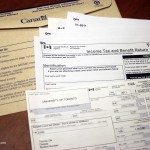Feb 062013

Study offers more equitable options.
from the Canadian Centre for Policy Alternatives
The BC government likes to boast that the province has the lowest personal and corporate income taxes in Canada but a new report from the Canadian Centre for Policy Alternatives says that's nothing to be proud of.
"A decade-plus of tax cuts has left us in a budget crunch and failed to deliver on promised economic benefits," says Seth Klein, co-author of the study and BC Director of the Canadian Centre for Policy Alternatives. "In recent years, BC's economic performance, business investment and job creation have all been fairly average in Canada. What BC's tax policies have delivered, however, is a much less fair system.
Taxes have been shifted from corporations to households, and from upper-income households to middle and modest-income ones.”
Among the study's key findings:
- If BC collected today the same amount in tax revenues as a share of the economy (GDP) as it did in 2000, there would be $3.5 billion more in public funds; meaning no deficit, and the ability to invest in enhanced or even new public services like early learning and childcare programs for all children.
- If BC collected the same amount of personal income tax as the average for other provinces, it would have an additional $2.4 billion in revenues.
The study models a series of possible tax reform options that would increase the province's fiscal capacity and spread the tax bill more fairly. It focuses primarily on personal income taxes, but also considers changes to property taxes, corporate taxes and resource royalties. The options presented are not meant to be adopted as a whole package, but highlight the range of possibilities and the amount of new revenues that can be raised.
If the top six percent of British Columbians paid more income taxes, with an increase to the current top bracket and the creation of two more for incomes over $150,000 and $200,000, $930 million would be raised, in one model. Budgetary possibilities with that amount could include 2,000 new units of social housing per year, increases to welfare rates and reduction in school class sizes, according to the report.
Other options include rolling back corporate income tax cuts to 2005 levels, reducing overly generous corporate tax deductions and increasing government returns from resources, which would raise over $1 billion.
The study follows recent CCPA opinion research showing that most British Columbians are ready to consider tax increases.
"People are well aware that we face a budget crunch," says co-author Iglika Ivanova, CCPA economist. "They understand that without more revenues, we can't sustain key services we rely on like health care, education — let alone address challenges like inequality, poverty, climate change and the affordability crisis in housing and childcare."


Sorry, the comment form is closed at this time.